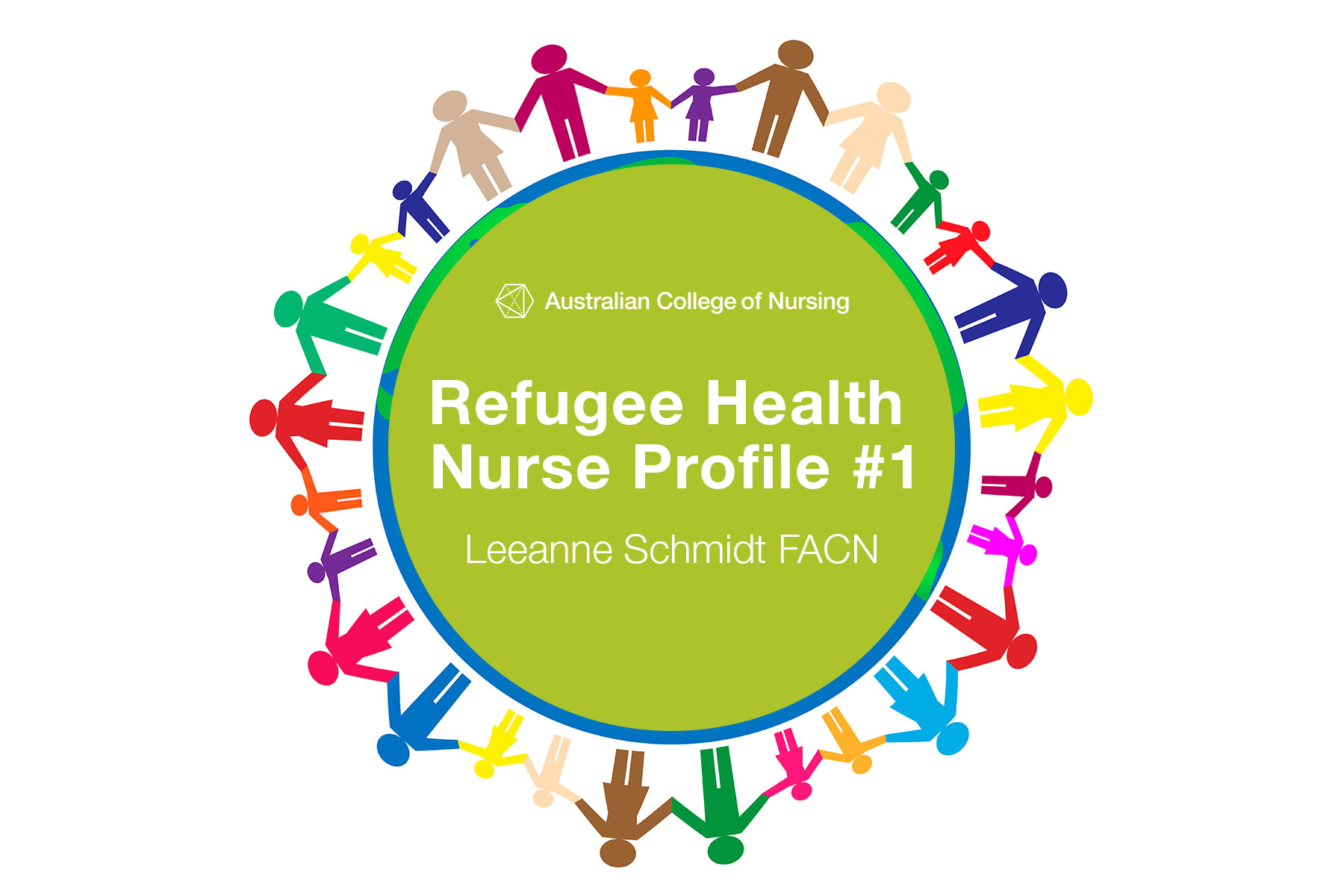Refugee Health Nurses are a diverse group of professionals who use their nursing expertise to care and advocate for those of refugee background or seeking asylum.
To mark Refugee Week 2021 — which focuses on uniting communities — we spoke to three nurses from across Australia to gain an insight into differing roles refugee health nurses play and the issues their patients face during their journey through the Australian health care system.
Leeanne Schmidt FACN
Leeanne is a Clinical Nurse Consultant who has worked in the area for 10 years. Five years ago, she was part of a group of refugee health nurses who established Refugee Nurses Australia. The organisation provides a forum for progressing professional, strategic, and contemporary issues for nurses who care for people with a refugee background and people seeking asylum.
Leeanne shares with us her journey into the field and the critical role refugee health nurses provide in improving health equity and access.
“My human rights values led me to this specialty area, as well as seeing people were missing out on care due to systemic racism,” she says.
“A background knowledge of the global impacts of conflict and trauma informed care supported me.”
“Understanding the difference between refugee status and a person seeking asylum is important. Advocating for the right to access equitable care is a daily challenge.
“The nursing profession is pivotal in building trust and coaching our patients and communities to be participants in their own care; a choice that may not have been offered before.”
“Nurses are critical to improving the health of people of refugee background and seeking asylum. We provide triage, care coordination and long-term support. A deep dive into patient-centred care assesses the impacts on the journey of migration, health seeking behaviours, traditional practices and beliefs, and past experiences.”
Leeanne goes on to highlight the critical communication and advocacy skills that refugee health nurses need to have to ensure their patients’ voices are heard.
“Communication is critical in all care that we deliver,” she says.
Navigating Australia’s health system is complex. Most of our patients do not read or speak English and/ or have health literacy in the Australian context, so working with professional interpreters is essential.”
“Interpreters are a crucial part of the care team and it is important to assess the patients’ needs (including patient’s preferred language, ethnicity age, gender, and faith) to source the correct interpreter.”
“Refugee nurses work in a complex and consistently changing national and global environment. This means having a big picture view of nursing and being strategic in how we advocate for system access and improvement.”
“Nurses enable our patients and communities a voice, and the opportunity to walk beside them in their settlement journey is a joy and privilege.”
The Australian College of Nursing would also like take this opportunity to thank all the nurses who are using their skills to ensure refugees and asylum seekers receive access and equity to heath care in a timely manner delivered by the appropriate health professional in the right place, at the right time. You can read more in our Quality health care for all refugees and asylum seekers Position Statement.





